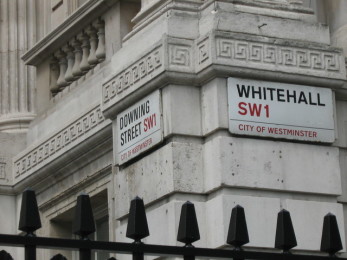 The Office of Fair Trading has just launched an investigation to scrutinise government IT procurement and the companies that supply it.
The Office of Fair Trading has just launched an investigation to scrutinise government IT procurement and the companies that supply it.
The top IT software and service providers earn roughly £10.4 billion a year through public sector contracting. That said, public IT projects are known for their disastrous implementation and frequent high profile bungles. Top providers often lock the public sector into excessively long contracts which must be seen to the end, and in some cases drag on even longer.
This is not a phenomenon specific to the UK. The public sector often finds itself duped into taking on bloated contracts that arguably provide little value for money, and serve more as a cash-cow for funnelling public money into private pockets without noticeable gains or efficiencies to the public.
The OFT announced that it wants to ensure market competition is up to scratch so that all firms can, at least, bid for projects without contracts automatically going to the biggest players.
“Healthy competition in any market drives down costs, drives up efficiency and promotes innovation,” an OFT statement read. “While a lack of competition can hinder productivity and, in turn, economic growth”.
G-cloud, a government project to open up procurement away from the the IT giants and offer SMEs a fighting chance, has been fairly successful but elsewhere the big hitters still dominate.
Phil Dawson, CEO of Skyscape Cloud Services, offered his comments on the investigation. “For far too long, IT giants and incumbent suppliers have been allowed to reign supreme,” Dawson said. “It is precisely this dominance that has created a stagnant public sector market, which is exactly what the G-cloud programme was established to tackle”.
“Through G-Cloud, public sector organisations are able to avoid inflexible contracts and the locked-in clauses which have been all too common with some of the big incumbent providers,” Dawson said.
The OFT will be examining whether there are barriers stopping smaller businesses from competing, as well as the difficulties associated in the public sector for switching suppliers.
This review aims to look specifically at if market supply is hampering competition rather than a general overview of public IT.
An approach oriented along the lines of G-Cloud would certainly be welcomed by British SMEs, as these companies can offer services that do not lean as heavily on the public purse.
To push further still, perhaps it is worth exploring open source products and services as other flexible, and potentially far cheaper, options.
A reorientation in public IT towards smaller firms, however, could easily upset top corporate lobbyists of the biggest businesses. A push towards open source alternatives would agitate even more.
 The government’s Crown Commercial Services has confirmed that Foehn is approved as a supplier in the category of ‘Cloud software’ on the G-Cloud 11 procurement framework, part of the Government’s Digital Marketplace.
The government’s Crown Commercial Services has confirmed that Foehn is approved as a supplier in the category of ‘Cloud software’ on the G-Cloud 11 procurement framework, part of the Government’s Digital Marketplace.














